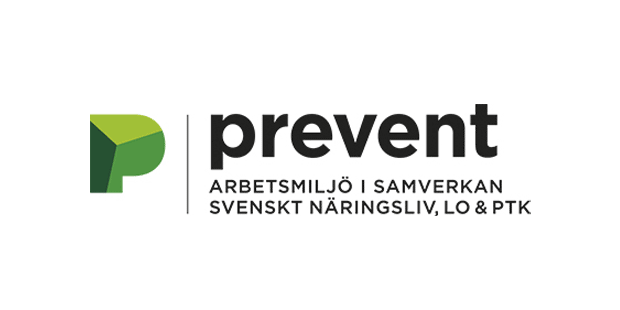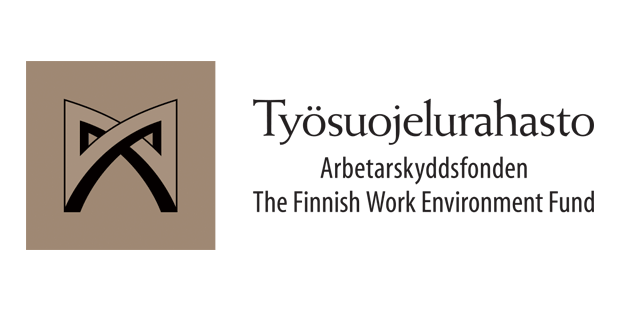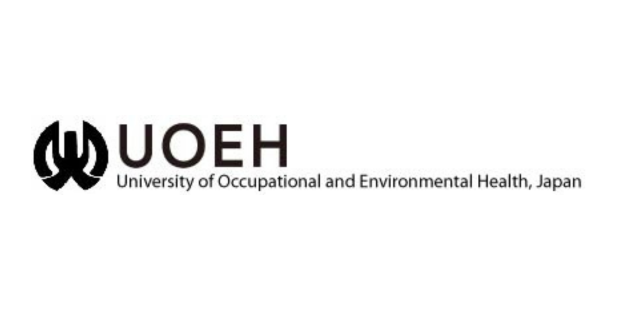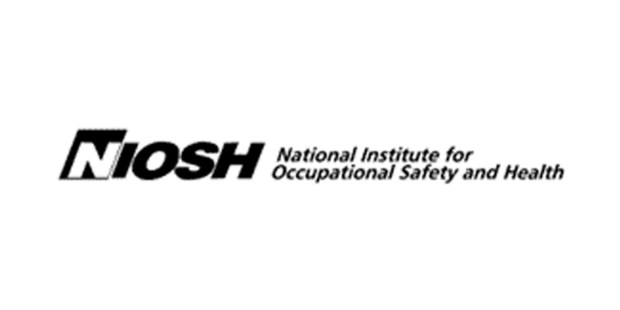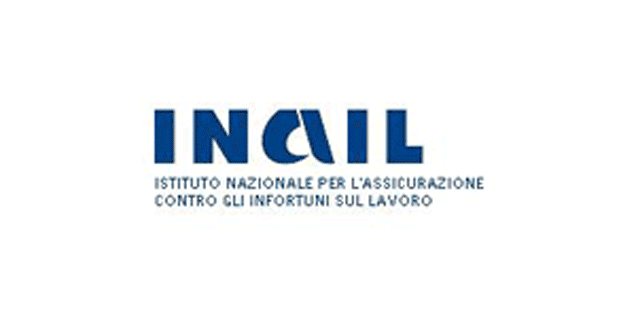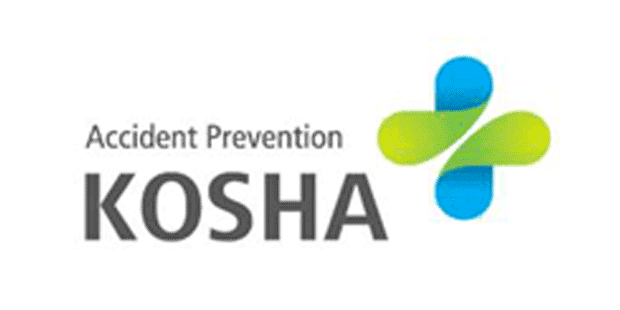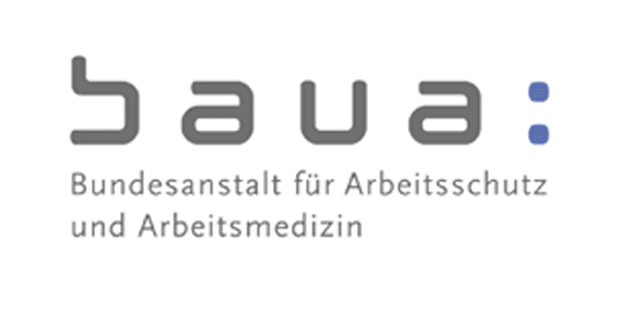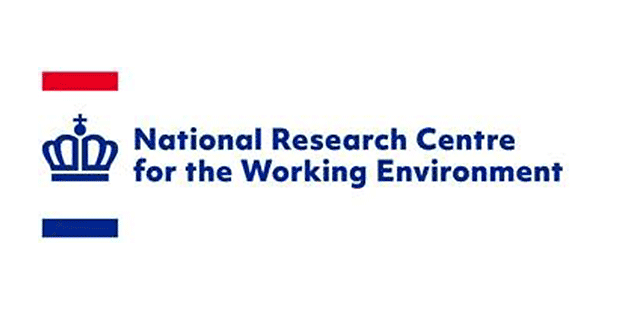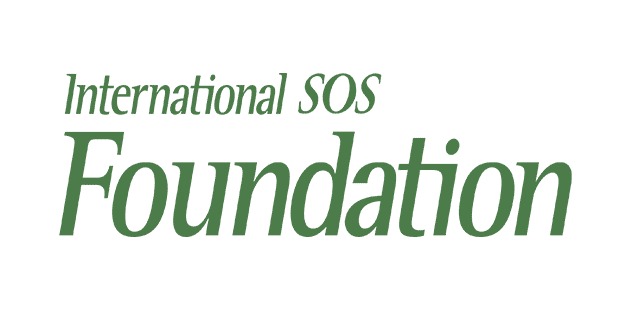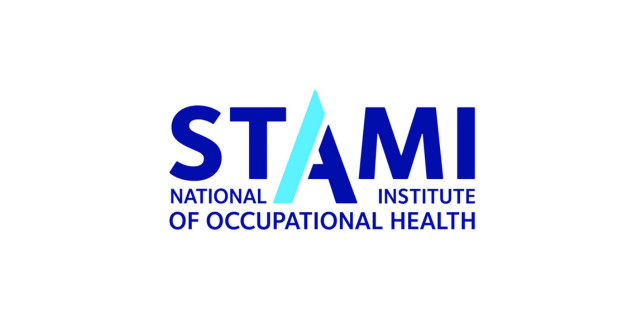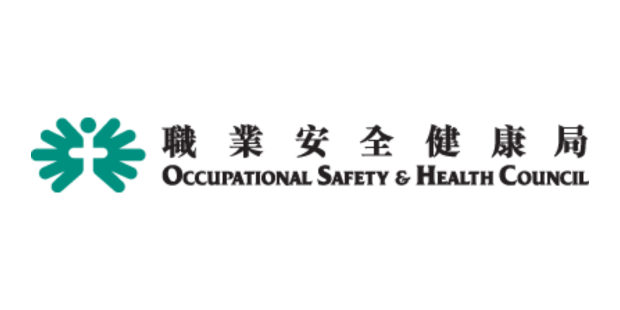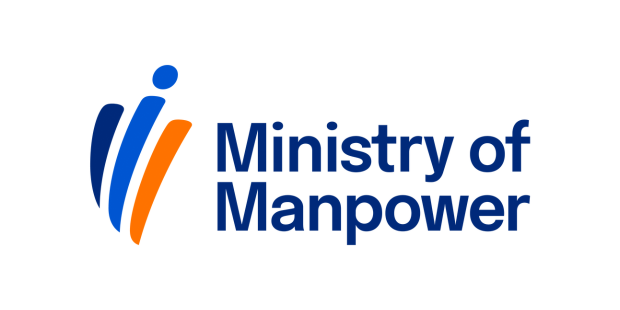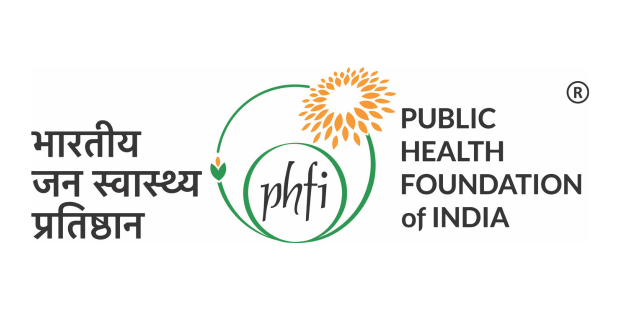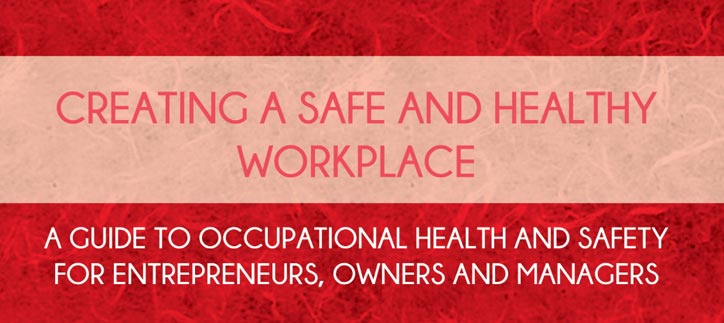President's Address
Dear Colleagues,
Time is running fast and the transition from the previous ICOH leadership to the new one takes its time as I foresaw in the General Assembly 2 in Iguassu. Gradually we with the Officers, however, will get us organized and the ICOH ship hopefully continues its course to the directions our past President Bengt Knave, his Officers and the Board so skilfully navigated it. After checking all the draft minutes from the previous Board and the two General Assemblies and of the New Board meeting in Iguassu and after convening with the Officers on the 9-10 May in London I am now ready to send out this first Presidential Letter and I plan to repeat it twice a year.
One of the observations from the transitory period is the difficulty of ICOH to store the documentation on activities and the maintenance of the so-called organizational memory. It has taken much effort to get all the data which is needed to manage such a highly decentralized organization as ICOH. Therefore the memory of the previous Officers and Board Members is of vital importance to the continuity.
Tough times in the turbulent world
The above was my subtitle in the Iguassu General Assembly address but we certainly were not able to foresee how tough the weeks after the Congress became. Let's hope peace will survive in the world and we can continue to develop the health, safety and wellbeing at work for all working people of the world. Effective management of new threats such as SARS - which is also a severe occupational hazard - is not possible in a hostile and conflicting world.
Globalization process does continue and simultaneously the turbulence of economies seems to increase (although many of the globalizing actions were made just to increase the economic stability). Fragmentation of enterprises and other organizations, downsizing and outsourcing are typical trends of our time and occupational health services are one activity, which has been taken in the list of outsourcing. Simultaneously the employment contracts of workers become shorter and precarious and the turnover and mobility of working people increases. Such trends make the contacts between occupational health and enterprises and workers looser than in the previous stabler work life. We need to innovate new models and mechanisms, which will ensure the continuities of contacts even with the fragmented structures and precarious workers and, first of all, to serve our constituencies and clients well.
There is also a reason to look after the underserved groups which are so far without any services. Poverty, poor labour market status and hazardous conditions of work go hand in hand. One extreme form of poverty is child labour. About one billion workers in the world are poor, including over 200 million child workers who are severely in need for protection and services. We need to initiate actions to work in two fronts, first to support the activities for elimination of child labour and other adverse conditions and secondly, to provide services for those who anyway continue to work in such conditions, before the situation can be improved. Also workers in high-risk sectors are without occupational health services and need to be considered.
According to the ILO Convention No. 161 and the WHO Global Strategy on Occupational Health for All, every working individual should be provided with occupational health services. To meet that challenge a new concept: Basic occupational health service (BOHS) was launched by the WHO/EURO Nancy Meeting of Collaborating Centres in Occupational Health. In the Iguassu WHO Collaborating Centres' meeting it was further developed and will in the future be made more widely international. We will discuss the BOHS with both the WHO and ILO leaderships and propose joint global action to make it a reality.
Also, the substantive problems faced by occupational health experts are likely to change in the future. The traditional, well-defined occupational diseases and injuries will continue to occur but in addition new types of health problems will appear and need advice and interventions from occupational health experts. New types of strategies, services and actions are needed to manage and control the conditions like occupational stress and burn-out as a consequence of psychological and physical overload, indoor air problems, work-relatedness of common diseases, psychosocial problems at the workplace, continuous change and insecurity of working people, aging and work ability, just to mention a few. All this implies that we have to research and assess both the traditional and new problems, we need to develop occupational health services to be able to operate in the new conditions and environments, and we need to maintain, upgrade and develop the competence of occupational health experts to be able to give an effective and competent response in the new situations.
Positive signs in the horizon
On the other hand, also positive signs are seen. Africa is rapidly growing in occupational health and the ICOH 2009 in Cape Town certainly will witness real progress in the whole continent.
While the industrialised world is in a state of stagnation, many particularly newly industrialised Asian countries (NIC) and developing countries continue their growth and want to invest more in occupational health and safety (OH&S).
Also many industrialised countries have made substantial reforms in their OH&S legislation that imply strengthening of occupational health actions towards both the new and traditional problems. The European Union is in the process of enlargement, and an essential feature of the process is to support, accelerate and stimulate development in applicant countries to try to meet the requirements of the Common European Law, Acquis Communautaire. Among the 29 legal chapters, the Acquis contains also an extensive package of social laws, including the Framework Directive on Occupational Health and Safety and some 20 Daughter Directives. The European Commission follows carefully the application of the accession criteria, and as the 13 applicant countries work intensively to meet the requirements of Directives, they also need to strengthen their occupational health capacities. In May 2004 ten applicant countries will join the EU and for them the Acquis becomes a binding law. On the long term this also means that there will be more Central and East European occupational health activities than during the period of transition. The ICOH needs also to be active to attract the joining of new members from the Eastern and Central European countries, and thus, support the positive development of occupational health in the subregion.
Latin America has shown its strength in the Iguassu Congress. The interest towards the development of occupational health was strong at all levels, starting from the highest political level and going to expert communities and to the level of enterprises, trade unions and individual workers.
The North America has demonstrated its power in research, education and practice. The high numbers of experts are actively sharing their results in conferences and in training courses throughout the world.
To sum up, in spite of turbulences in the world economies and in the world politics, the political and practical interest towards occupational health is high, and the expert and research communities are mobilized. This is also seen in the number of ICOH membership that has also turned to growth.
Observations from the ICOH 2003
Excellent organization
The 27th International Congress on Occupational Health, ICOH 2003, in Iguassu, Brazil, was without any reservations a great success. The Congress had a timely theme; the Challenge of Equity in Safety and Health at Work. The theme was an excellent choice and all the 12 keynote addresses discussed the theme in view of present and future challenges. ICOH role as one of the contributors for equity was well demonstrated. Equity is also an important ethical issue that needs to be considered in the further development of our ethical guides. The Brazilian Colleagues, Professor Ruddy Facci, the President of the ICOH2003, Professor René Mendes, Scientific Chairman of the Congress, Professor Edoardo Santino, and many many others have deserved our warmest congratulations and thanks for their enormous work for the Congress and for all the success we witnessed. We also want to thank the Brazilian National Association of Occupational Medicine (ANAMT) and all the Brazilian and neighbouring countries' governments, expert communities, authorities and institutions for making the Congress a success.
Participation
All together 2034 occupational health experts from 79 countries attended and some 1,300 communications were presented in the Congress. The Scientific Committees have made excellent work for the sessions in their respective topics and the members were highly satisfied with the quality of presentations and discussions. What was also important, very productive contributions were provided by our international allies, WHO, ILO, Collegium Ramazzini, IOHA and many others.
Presentations
The presentations very well covered the broad field of multidisciplinary occupational health and it was very promising to see that the discussions and the themes of the Scientific Committees addressed to both the challenges of the traditional hazards and the problems of the new work life. Some statistics on the ICOH2003 is presented in Table 1.
Table 1. Statistics on the ICOH 2003
| Participants / Speakers/Events | Number | Membership/Authors |
Total number of participants |
2034 | 464 ICOH members |
| Countries represented | 79 | |
| Keynotes | 12 | |
| Free Communications | 523 | 1,500 |
| Posters | 340 | ca 900 (460 ICOH members) |
| Round Tables | 23 | 92 panelists |
| Symposia | 75 | ca 380 active panelists or speakers |
| CD ROM | 1,100 Abstracts | 2,900 Authors |
New research
As areas of applied research, occupational health and related research areas are critically dependent on the progress in basic research. New opportunities are provided by the rapid developments in basic biomedical and natural sciences, in epidemiology, toxicology, physiology, psychology, social sciences and in technology research. Such advances provide numerous new methods, mechanisms of actions of occupational risk factors, measurement and registration and monitoring technologies and even new biological and physiological effects and responses, which are relevant to occupational health. The challenge to us is to make effective use of such new innovations for the benefit of occupational health research, and in the development of our work and in practice.
New challenges
New problems are emerging to the work, work environment and work life in general, new psychosocial epidemics related to new types of work, new working time schedules and new work organizations. Almost annually a new biological hazard or outbreak has occurred during the past 10 years as now the SARS epidemic. Almost always they have also had an occupational health dimension which is not often observed by the health sector. We need to elevate our readiness to protect workers against such hazards.
Continuous threat of unemployment, increasing rates of precarious works, violence and other destructive behaviours, particularly toward service workers and other types of destructive behaviour need totally new strategies from occupational health. We are still in the very beginning to deal with such new problems.
New technologies, materials, substances and new energies (such as radiofrequency EMFs) in general provide much new opportunities and eliminate many risks at work (for example, through distant control of hazardous processes) but may also introduce new risks and problems. Continuous vigilance by both researchers and practitioners is needed to identify the potential new risks, make competent risk assessment and propose preventive and control actions at the earliest possible stage.
The process of globalization has often been seen as a one-sidedly negative phenomenon. No doubt, numerous negative impacts are seen in the conditions of work, in employment and in the growing pressures to workers due to hard global competition. But globalization also has a positive side, better employment in many new areas, certain harmonization of the requirements for quality and conditions of work and social and environmental conditions for world trade. We should more effectively advocate the need of high standard of occupational health and safety and quality of work life as critical factors in the development of global economies. In those efforts, the UN special organizations, ILO and WHO, are our most important allies. A highly positive impact from the globalization process is the globally improved communication and availability of information. We as an international organization need to make full use of these opportunities as most of our activities are heavily information- and communication-dependent. Global world business should be accompanied by global occupational health and safety movement and by a strong social dimension. Our initiative for BOHS works for that objective.
Development of International Occupational Health
ILO and 'SafeWork'
The ILO has launched and strongly involved itself in the implementation of the most important global programmes for "Decent Work" and "Safe Work", and to the elimination of child labour. ILO is currently planning a new strategy for OH&S for the next 5-year period. Those programmes and activities will substantially strengthen the efforts for global OH&S both in the developing and in the industrialised world and need much expert, scientific and training support. ILO has invited ICOH to participate as a NGO partner in its programmes which is an opportunity to us to strengthen also the implementation of the ICOH mission globally.
WHO and the Global Strategy on Occupational Health for All
The WHO occupational health programme is in the stage of active development, particularly through activities of the Global and Regional Networks of the WHO Collaborating Centres in Occupational Health that convened in Iguassu. The 15 Task Forces assigned to work for the priorities of the Global Strategy gave Progress Reports on the implementation of their assignments and agreed upon the actions for 2002–2005. The second half of the Action Programme that was launched in the year 2001 in the Chiang Mai Network Meeting in Thailand is expected to show a great number of concrete results and outputs.
ICOH has been an active partner in the Collaborating Centre Network activity in two different ways a) as an active NGO partner working in collaboration with the Network and b) through its members who constitute a substantial part of the staff of the Collaborating Centres. The ICOH contribution to the objectives and actions for the implementation of the WHO Global Strategy at the both global and regional levels was welcomed by the leadership of the Collaborating Centre Network.
The European Union
The EU has also launched a new EU Strategy on Occupational Safety and Health for the years 2002–2006 which emphasizes the need to develop OH&S and provide a response to new challenges. The European Union and their Bilbao Agency and the Dublin Foundation are important regional allies who work for region-wide development of occupational health and safety through policy, research, standards, regulations and programmes. Collaboration with EU is an important new area on the ICOH intergovernmental agenda. The European members of ICOH are called to support the European Strategy for Occupational Safety and Health for 2002–2006 that covers besides the present 15 members also the 13 applicant countries in Central and Eastern Europe of whom 10 will join the Union in April 2004. The EU developments very much guide the developments of other parts of Europe as the growing commercial and political relations include strong elements for the development of the social dimension with all partners of the EU.
NGO partners
The ICOH has a number of other international organisations that are our most important allies in international occupational health and with whom we want to collaborate closely and develop our activities further. These are:
IOHA
IOHA, International Association of Occupational Hygiene, shares fully the ICOH mission for development of occupational health. The Joint Declaration to Strengthen the Position of Occupational Hygiene, signed on 27 February 2003 in Iguassu, is a strong signal on willingness to collaborate at all levels for the common objectives. Close links will be maintained and further strengthened not only in policy but also in practice. A special Liaison Officer will be appointed by the ICOH Board to take care of this collaboration.
IEA
The International Ergonomic Association (IEA) has many activities that are directly in synergy with the ICOH mission. The collaboration will be continued and a Liaison Officer in the ICOH Board will work for that purpose.
Collegium Ramazzini
The Collegium Ramazzini (CR) is a partner of ICOH since its foundation in the 1970s. ICOH and Collegium Ramazzini share both the values and objectives of occupational health and have worked together, for example, to promote the global ban of asbestos. A high number of CR members participated actively in the Iguassu Congress. President of Collegium Ramazzini, Professor Philip Landrigan participated in the Iguassu Congress as a Keynote Speaker, organised and chaired a special session on the Precautionary Principle in Occupational Health and took part in several other activities of the Congress. A Memorandum of Understanding (MoU) will be prepared for further development of collaboration between the two organisations.
ISSA
The International Social Security Association, ISSA, is an important international actor in the field of global social policy and has also activities in international occupational health. Closer collaboration will be generated with the ISSA leadership and particularly with its Scientific Sections for the development of closer collaboration through a special Liaison Officer in the ICOH Board.
Global ILO/WHO/ICOH Joint Action on Basic Occupational Health
The above International Organisations constitute together with ICOH the engine of international occupational health. As the presentations and discussions of the Iguassu Congress clearly indicated there is an urgent need to strengthen the efforts for the expansion of the coverage of services and for the development of the content of occupational health services throughout the world and particularly in the developing countries an in the countries of transition. Further and intensified global actions are needed. The ICOH has made an initiative for a joint ILO/WHO/ICOH action for the development of Basic Occupational Health Services (BOHS) for all. Negotiations on the action will be started immediately with the respective partners in the ILO and WHO, and the ICOH leadership will in spring 2003 participate in both the discussions of the World Health Assembly and the ILO Conference, where the initiative will be taken up in discussions.
The ICOH Officers and the new Board
The new Officers have started their activities. As I mentioned in the Iguassu General Assembly, the transition is now more extensive than before as the President (JR), one Vice-President (AC) and the Secretary General (SI) are new. The senior Vice President (RF) and the past President (BK) fortunately represent continuity. The Secretary General has put much effort to move the office from Singapore to Rome that among others implies the transportation of huge amounts of material stored in the archives and transfer of all the economy and management routines. Not at all simple but the Secretary General has succeeded well.
The organization of work of the Officers has been done as the following:
| President Jorma Rantanen (JR) | General strategy, overall follow-up of activities, external policy, WHO, ILO, Collegium Ramazzini, TG Constitution, Centennial Committee |
| Senior Vice President Ruddy Facci (RF) | National secretaries, Tobacco Free Workplace, Developing CountriesTG Membership, TG Biological Agents, SC Work and Vision |
| Vice President Alain Cantineau (AC) | General coordination of Scientific Committees, special liaison to SCs on health, GOMECTG Constitution, TG Transparency |
| Past President Bengt Knave (BK) | General advice to the President and other officers and Board, liaison to WWCS, Centennial Committee, TG Constitution |
| Secretary General Sergio Iavicoli (SI) | General operational management, economy & finances, Internal Information, TG Information, Membership Issues, Finance Committee, TG Constitution, Centennial Committee, TG Language Matters, SC History |
Each of the Officers will, of course, be responsible for the tasks allocated to them by the Constitution and the Bye-laws.
The composition of the new Board
The new Board was wisely elected by the Members of the ICOH. It represents a wide spectrum of research and competence areas of occupational health and also much experience is available for the ICOH decision-making. Some aspects of the composition are, however, less satisfactory:
- the gender equity is not well considered as only one female member was elected
- the geographical distribution is missing Sub-Saharan Africa, otherwise it is reasonably well balanced
- occupational hygiene is not represented in the Board.
This implies that the President needed to propose one or two additional members to the Board. On the proposal by the President and after discussion with the Board, Ms. Jennifer Serfontein, Chair of the Scientific Committee on Occupational Health Nursing has been invited to become a member of the Board. She has kindly accepted the invitation. The possibility to co-opt one additional member is further examined.
Assignments and organization of the work of the Board
The Board will comprise several Committees, Task Groups and Working Groups for performing special activities. Many of the groups continue their activities from the previous triennium but also a number of new activities are initiated. Networks will also continue their activities and close collaboration with the Scientific Committees active in the related topic is called upon. The composition and tasks of the Committees, Task Groups, Working Groups and Networks are given below (Annex 1). The assignments for liaison with the Scientific Committees to individual Board Members will be announced as soon as the acceptance from the Members in concern has been received.
Scientific Committees
As mentioned above, our Scientific Committees (SC) constitute the core activity of ICOH. The Iguassu Congress was actively supported by the SCs as mentioned above. The SC Officers, the ICOH Leadership and the Board had a very fruitful meeting in connection with the Congress.
In connection of the Iguassu Congress, the SCs also decided on proposals for the Chair and Secretary for appointment by the President. In some Committees, some unclarities have prevailed on the procedures for election of the Chairman. Bye-Law 11 stipulates much on the status and activities of the SCs, but does not precisely define the method for election of nominees for officers of the Committees. The Bye-Law spells clearly out that the ultimate appointment of the chair of the Committee is on the President who also approves the election of the secretary elected by the Committee. The Officers and the Board have decided to produce a guideline for election procedure and for general guidance of the activities of the Scientific Committees. We do not want to make it too complicated nor cumbersome, only to guide the process so that it corresponds to a good association practice and that important events and activities become properly documented.
Scientific Committees vary widely in their structure and the level and type of activity. Some have organized a Board as provided by the Bye-Law 11, some others work with the Chair and the Secretary. Some Committees meet annually and organize a Symposium, some others only in the middle of the triennium period. Many other variations of the activity are seen. In the guideline mentioned above, the Officers after discussion in the Board will also define the reasonable level of activity that is expected from the SC in the triennial period. This is just to reduce the wide variation in the activities of the SCs.
ICOH is a typical voluntary NGO that has little financial resources, low level of institutionalisation and much and very versatile activities. As many of the activities need substantial institutional support we need to look at those members who are affiliated with such organisations. Many practical activities can be done with the help of back-up given by our members' host institutes. In an optimal case the ICOH activity could also serve the objectives of the host Institute. As the support by the Institutes is highly appreciated, the ICOH members are encouraged to find such synergies between the activities of ICOH and the host Institutes. The availability of the institutional support should also be taken into consideration as the special operational assignments are allocated to groups or to members.
The contacts between the Board and the Scientific Committees can be tightened. After discussion with the Board, the Officers and the President have made the following decisions on this issue:
- The overall coordination of the Scientific Committees will be enhanced. The coordination of the Scientific Committees is assigned to Vice-President Alain Cantineau.
- Special substantive contacts with individual Committees in scientific issues: Assignments given to individual Board Members.
- The assigned Board Members have a duty to serve as a link between the Chairs and Secretaries of the Scientific Committees and the Board.
- The Chairs of the Scientific Committees will be invited to the Mid-term Meeting.
Membership issues
The ICOH membership has been slightly declining during the past two triennia. On the other hand, positive perspectives are seen as a few dozens of new membership applications have been received before and during the Iguassu Congress. We have also got a few new Sustaining Members. A special campaign will be made together by the Senior Vice-President, the Secretary General and the Board Members to increase further the membership. We also need to make sure that the benefits of being a Member will provide enough added value for the Members. In fact, every Officer, Board Member, Chair and Secretary of the Scientific Committee, National Secretary and individual Member of the ICOH is expected to work for increasing the membership and for promoting ICOH mission in their respective constituencies. Again, here the web should be used more effectively. Special efforts will be made to recruit new members from Central and East European countries and from the Developing Countries. Also, the 'old Member Countries' have much scope for increasing the membership. Active efforts for recruiting young members is vital for the ICOH future.
Main Objectives for the Triennium
The main objectives of the Triennium 2003-2006
ICOH and the Scientific Committees have a broad scope of activities in relation to the available budget and resources. In the Officers' Meeting and in the Board, we agreed on the principle: not too many objectives, but those that are set, will also be done. I would like to put the general ICOH objectives in the following six points:
- Structuring ICOH as an organization
- Making alliances with ILO and WHO to launch Global Actions on Basic Occupational Health Services
- Increasing membership and providing more added value to the Members. More young members will be recruited.
- Making effective internal and external information activities
- Preparing for centennial events
- Supporting, facilitating and coordinating the activities of the Scientific Committees.
With these words I wish the Members most successful season and hope we will be an active organization with Excellence in Research and Much Innovation Action in Practice...
Professor Jorma Rantanen
President of ICOH


